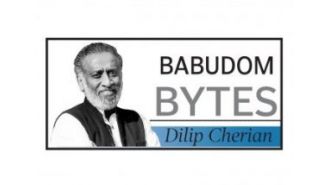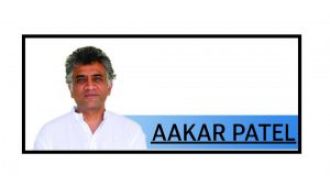The Empty Quarter

Eric Weiner, who wrote “The Geography of Bliss,” has a way of making you fall in love with places. His travel memoir from visiting the desert made me think back to a time when I stayed in the desert.
On day two of my journey into the Empty Quarter, the world’s largest sand desert, an odd, unbidden calm swept over me. My breathing slowed. My mind no longer darted from thought to thought, like a chimpanzee with ADHD. I could think again.
I’m not sure how to explain this uncharacteristic tranquility. Maybe it was the way the desert light played across the sand, shifting from khaki to brown to Martian red in the course of only a few hours. Maybe it was the complete absence of even a trace of civilization: not a single road or building or other human, save my Bedouin guide Suhail. Maybe it was the lack of Internet connection or cell-phone signal.
Most likely it was some combination of the three, plus an elusive fourth element, one that for centuries has attracted people to this unforgiving land on the Arabian peninsula. It is a strange attraction, for there is nothing nice about the desert, “a bitter, desiccated land which knows nothing of gentleness or ease,” wrote Wilfred Thesiger, a 20th-century British explorer who crossed the Empty Quarter on camel and foot.
So, how to explain the unexpected beauty of this unforgiving, desolate land? What is the allure of a vast expanse of sand, and not much else? It boils down, I think, to a kind of desert essentialism. Everything we treasure in the non-desert world evaporates like water on hot sand. Money is of no use here, nor is reputation, fame, or any of the other ego food we spend so much time pursuing elsewhere.
Only two things that matter in the desert: water and shade, and neither are entirely under our control. “The desert teaches you never to take yourself too seriously,” says Belden Lane, a professor of theology.
Pierre Loti, a 19th-century French novelist and desert traveler, explains the appeal this way:
“You get drunk on light and space. You know the heady intoxication of just being able to breathe, just being alive…one has the illusion of truly being united with universal permanence and time.”
Deserts like the Empty Quarter strip us bare. They demand to know, “Who are you?” It is not interested in the various roles you play in more temperate climes—parent, son, employee, upstanding citizen—but only cares about the real you, the essential, naked you.
The Empty Quarter may be empty but that emptiness is not static. The color of the sand shifts, as do the sand dunes. They are enormous, rising to heights of eight or nine hundred feet. More like sand mountains than dunes. Each one looks different, too, their shape and contours changing with the prevailing winds. Here, the land literally shifts beneath your feet. There are two ways to react to such uncertainty: fear or faith. It is no coincidence, I think, that all three major monotheistic faiths were born in the desert.
The desert is a spiritual proving ground, an unforgiving crucible of sand and heat.
In the Torah, God leads the Israelites through the Sinai desert, even though a shorter route to the promised land existed. This was not a mistake (God doesn’t make mistakes.) The desert was a test. Were the Jews still shackled by the slave mindset? Were they tempted to return to the promise of a regular meal in Egypt, even if it came attached to shackles?
In the fourth and fifth century AD, renegade Christian monks retreated to the desert. “To me a town is a prison, and the desert loneliness a paradise,” wrote Saint Jerome, one of the “desert fathers,” as they are known. Some still do so today.
In the desert, death is never far away. I was reminded of that when I stumbled across the skeleton of a camel, its bones bleached bright white by the desert sun. When I went for a walk and briefly lost sight of my guide, I thought: if I don’t find him, I will die here. This was not a hypothetical. It was a certainty. Yet it is this nearness of death that makes us feel more alive.
Even a few days spent in the desert can have a lasting impact. As Wilfred Thesiger said, “No man can live this life [of a nomad]and emerge unchanged. He will have within him the yearning to return…for this cruel land can cast a spell which no temperate climate can match.”
Will I return to the Empty Quarter? Perhaps. But the real question, I think, is whether the desert, and the lessons it has taught me, stick. I sure hope so.
I had 3 takeaways.
First, his notes about desert essentialism is one I’ve found to be so true in nature. It’s just you – no titles, no status, and no wealth. Stripped of everything, you are forced to get to know yourself.
Second, I thought his observation about the two ways to react to the uncertainty of the desert (fear or faith) was powerful. It is much easy to talk about being rational when you live in a world with exponentially less daily uncertainty.
Finally, as much as Eric was talking about how the desert cast a spell on him, I found Eric’s writing cast a spell on me. A great reminder of the power of a well-crafted essay.






